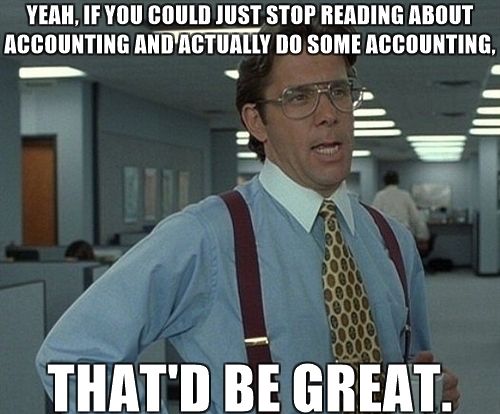Bad accounting is everywhere. Chances are that you have it. Top symptoms include never getting useful information from accountants, constantly finding mistakes others should have caught, not getting financials on time, and dreading your conversations with them. Complaining about accountants is the norm, so is not getting useful, reliable information. Most business leaders have not experienced the lift in the wings provided by a well functioning accounting team. They simply don’t know what they are missing. In turn, accounting departments get overlooked, understaffed and underfunded, which could explain some of the poor performance. However, many of the shortcomings persist because employers and clients don’t demand or expect more, they just don’t know where the bar should be.
Unfortunately, when accountants fail to deliver, the repercussions can be severe and multifaceted. Let’s examine the most common bad accounting symptoms, if you recognize any of these, please talk to your team, create a plan for change, or find a better team:
- Late Financials:
- Again? Delayed financial reports hinder decision-making. You need to have a tight accounting process every week to finish financials on time.
- Not Knowing Which Products/Services Are Profitable:
- Lack of insight into general profitability and product/service profitability hampers strategic planning, makes it impossible to find and correct operating inefficiencies, and makes cost cutting exercises as easy as pinning the tail on the donkey with a blindfold on.
- Error Overload:
- Mistakes in bookkeeping and financial records create chaos and make financials absolutely useless to management, banks and investors.
- They Hide Behind Jargon:
- Jargon and poor tone are used to confuse you and avoid accepting responsibility for mistakes and a poor process. A professional will always manage to explain even the most difficult of concepts in a digestible way.
- No Helpful Information/Alerts:
- Your accountants are in a great position to see overpayments and missed payments, opportunities for savings and efficiencies…if only they would take the time to find them and care enough to tell you…if only.
- Generic Financials:
- They never bothered to customize your financials to take your business’ operations and industry into account, which means you won’t be able to transform data to information and insights. Doing the bare minimum never works.
- You Don’t Know How Long Cash Will Last:
- Ineffective cash flow tracking results in cash shortages, last minute borrowing, high interest payments, and missed opportunities.
- Low Valuations = Decreased Ability to Borrow or Raise Funds:
- Most people in finance recognize poorly put together financials on sight, so banks, PEs, VCs, investors and potential acquirors will have no confidence in your financial health. That means higher interest rates, bad terms, or large valuation haircuts.
- Customer & Vendor Dissatisfaction:
- Billing inaccuracies and financial disputes strain customer and vendor relationships.
- Fraud Vulnerability:
- Inadequate controls and general messiness increase the risk of fraud and financial mismanagement.
- Tax Troubles:
- Failure to comply with tax regulations results in legal repercussions and financial penalties.
- No Communication:
- Poor communication exacerbates issues and erodes internal and external trust.
In summary, bad accounting is more common than good, the problems it causes are detrimental to business, and extend beyond financial losses to encompass operational inefficiencies, legal liabilities, and damaged relationships. If you think you might be experiencing bad accounting, remind yourself that you deserve better, that better is possible, and make it happen. If you need help, we are here for you.

